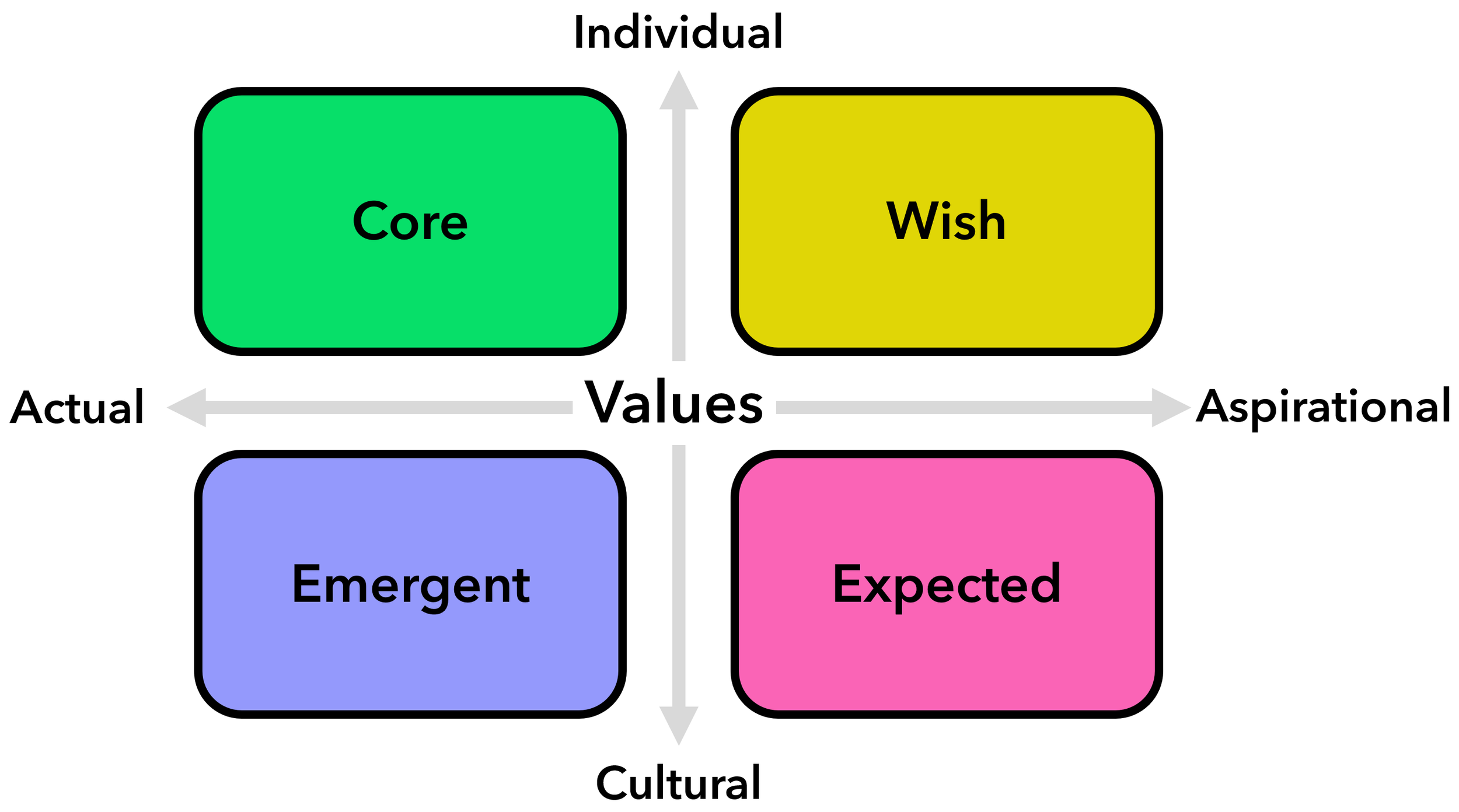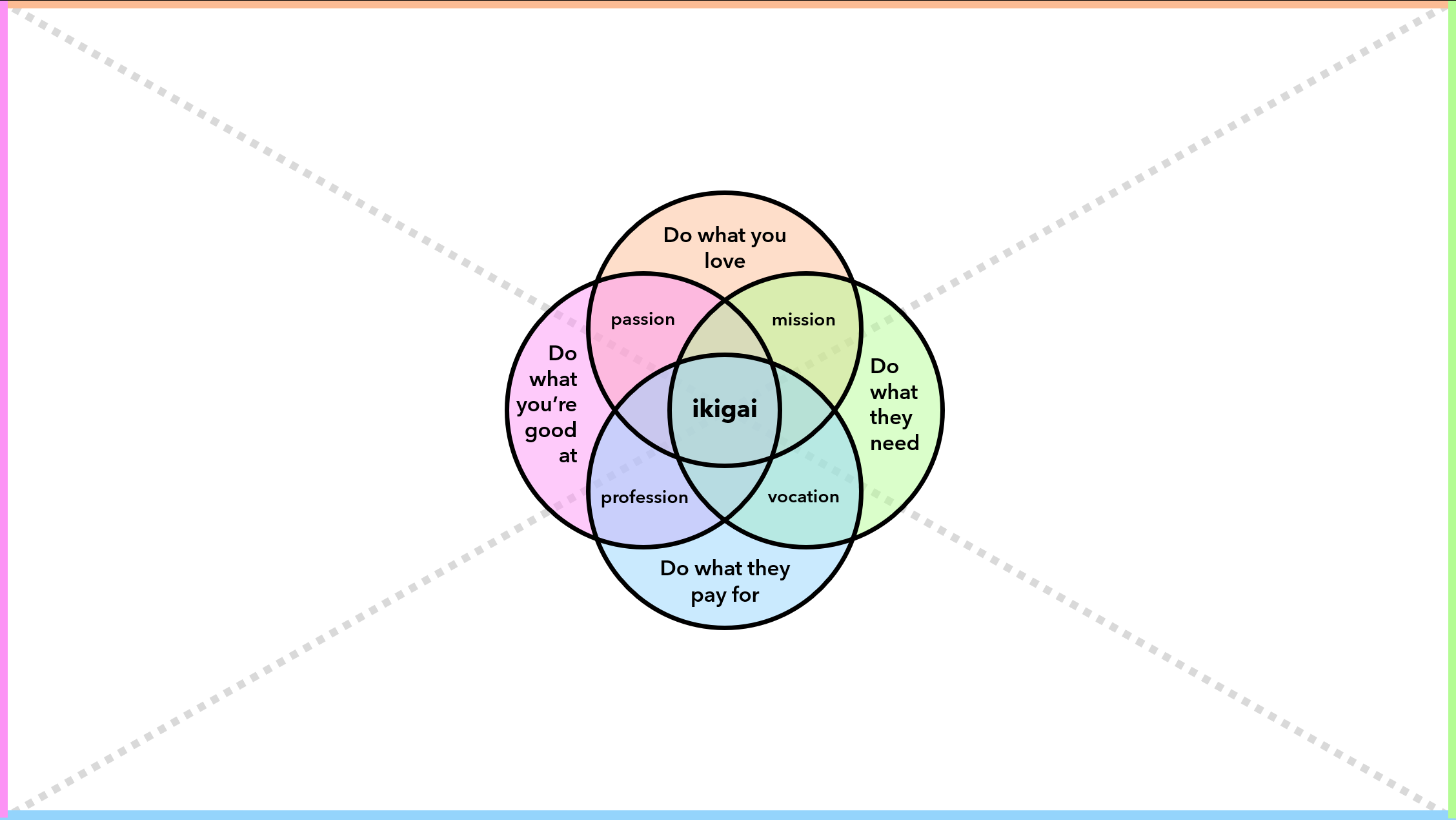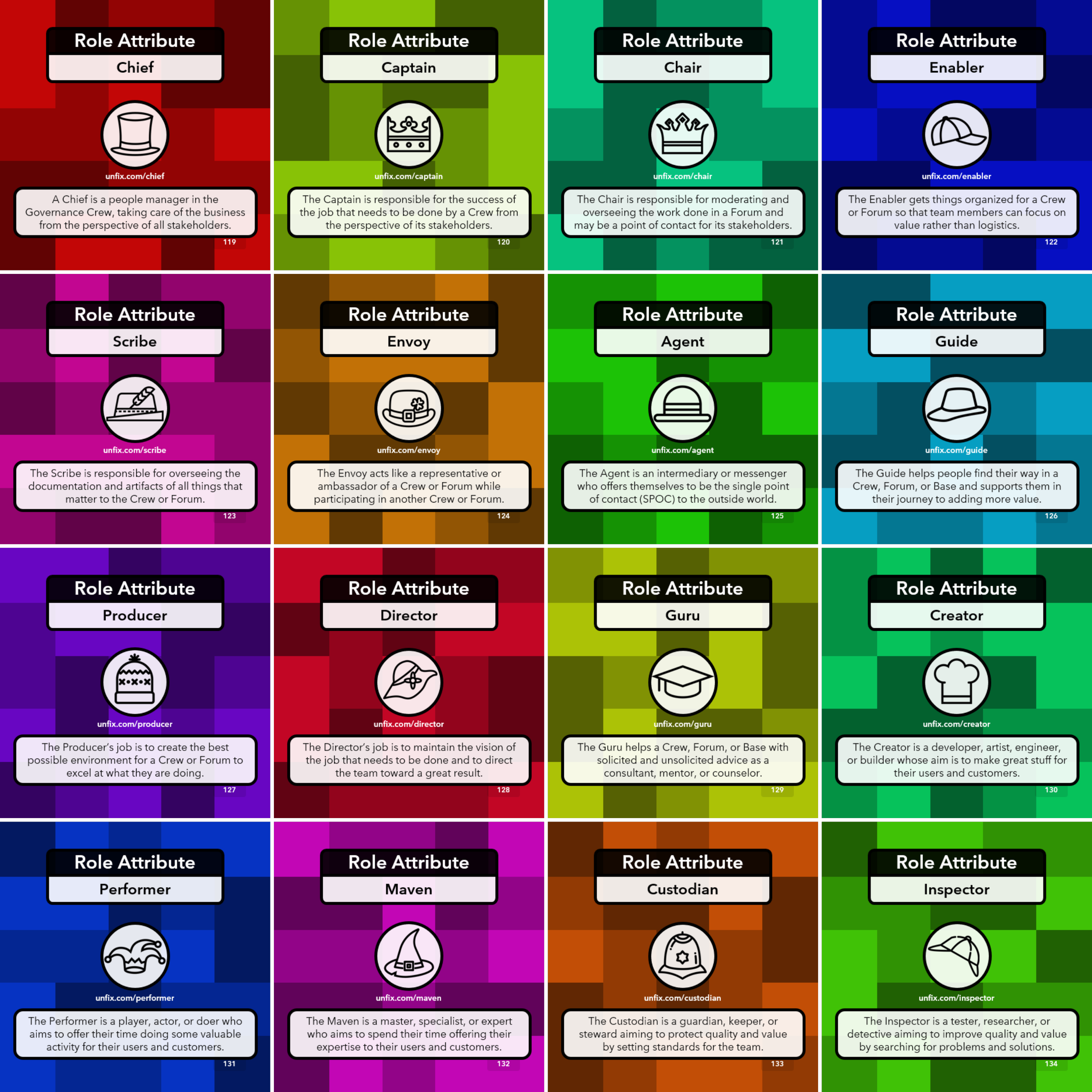
The Product Is Not the Experience
The problem with most company and product visions is that they focus on output rather than outcome. We can explicitly distinguish the product value to be offered from the feelings and emotions we hope to generate.

Behavioral Values - Core, Wish, Emergent, Expected
Defining and living by behavioral values is crucial for creating a positive culture and achieving success in any organization or team.

Ikigai - Meaning and Purpose
The Ikigai model has gained popularity as a tool for individuals and organizations to define their purpose.

Either Cheap, Safe, and Fast, or … Veto!
“No” is not the same as “Heavens, No!” We use the Veto card when facing real failure: experiments that are not cheap, safe, or fast. Everything else is worth trying.

No More Fixed Jobs (for Me)
The four Time Commitment patterns in the unFIX Model may help your team members clarify what they like best. You can use the cards to design a game or use the symbols to annotate your organization designs.

Dependencies Make Us Better
Division of labor introduces dependencies. We must limit the number of contexts we are involved in and willfully divide our labor because dependencies make us better.

Just Enough Roles: Less Is More
Sometimes, roles are helpful; sometimes, they are not. The challenge in organization design is to strike a balance between clarity and flexibility. The set of Role Attributes in the unFIX Model can help you with that.
